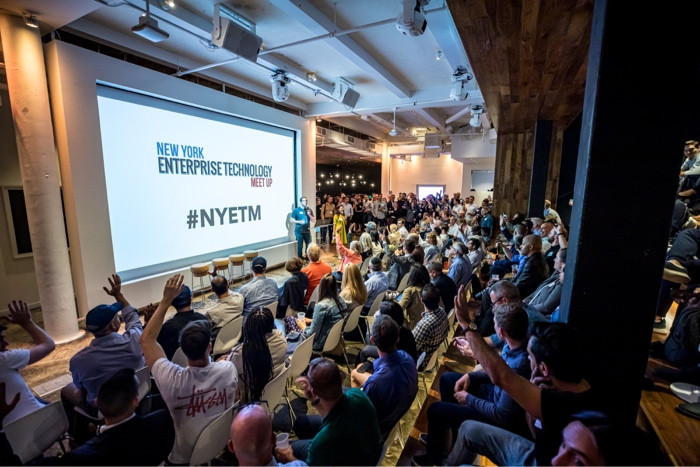In late 2020, a year marked by a global pandemic, racial unrest and social tumult, Cisco launched the “Aspire Fund,” a $50M, five-year venture investment to help finance and scale diverse-led startups and venture funds.
Inspired and driven by a deep belief in social justice, Cisco wanted to help create a future inclusive for all while promoting tech that aligns with Cisco’s innovation and growth strategy. To put this desire into action, the company knew that by reshaping the future of tech leadership, we could deliver a bigger impact for people and communities everywhere.
So, when we drafted the Aspire Fund’s mission statement, it wasn’t enough to simply fund the technology of tomorrow; we wanted to help evolve our partner ecosystem by investing in companies and venture funds with diverse founders and leadership teams equally committed to changing the face of enterprise tech.
“Our team has taken this initiative to heart, meeting with over 30 diverse founders and investors over the past year to identify opportunities where we’re not just writing a check, but truly partnering with them to drive a more inclusive venture capital community,” says Derek Idemoto, SVP of Corporate Development and Investments, Cisco.
Today, we are excited to announce our latest investment as part of the Aspire Fund - Work-Bench, an enterprise tech VC firm working to build community, particularly for diverse and women-led enterprise startups.
Introducing Work-Bench: A New Breed of Enterprise Tech VC
Work-Bench invests in early-stage enterprise startups in AI/ML, cybersecurity, cloud native infrastructure and future of work — many of the same verticals that Cisco invests in — with a hyper focus on supporting customer acquisition and go-to market.
At the helm sits Co-Founders and General Partners Jessica Lin, a former Learning and Development Manager at Cisco Systems, and Jonathan Lehr. Lin’s passion for the future of work and supporting women in enterprise tech has led to the launch of the Navigate: Women in Enterprise Tech Summit and a groundbreaking public Women Founders of Enterprise Startups Database. Lehr focuses on investments in data, machine learning and AI, while Partner Kelley Mak focuses on security, cloud and developer tools.
Leveraging their collective experience in the corporate IT world, the Work-Bench team connects Fortune 500 executives with startups to solve today’s biggest enterprise pain points.
Based in New York City, the enterprise tech VC firm has access to one of the largest local concentrations of Fortune 500 executives and high-caliber enterprise customers per square mile.
“Work-Bench has a truly differentiated approach in how they engage with their portfolio companies and customers,” says Amit Chaturvedy, Senior Director, Corporate Development and Investments, Cisco. “Due to their unique position in the NYC market, they have unparalleled access and visibility to the enterprise ecosystem.”
Since the company’s founding eight years ago, Work-Bench has scaled with its hometown’s evolution as a launchpad in the tech startup space, with New York City now running second only to San Francisco.

Small Team, Big Impact
They may be small, but Work-Bench’s mighty staff of six hosts up to 200 events a year, from the flagship New York Enterprise Tech Meetup (NYETM) and quarterly Women in Enterprise Sales Forum to the Navigate Summit, a first-ever women in enterprise conference that hosted 250 female founders, operators and top-tier investors.
When Work-Bench launched the women in enterprise founders’ database over three years ago, they set out to provide visibility to founders across all stages of funding, from early to late stage. Since the launch, the database has become a consistent reference tool tapped by investors to identify founders for funding opportunities, conferences and events, Lin says.
“Previously, there were no definitive lists for people to reference women founders,” she says. “VCs can talk all day about diversifying their deal flow, but the only way to do that is through data and behavior change.”
It’s their proactive outreach to women founders everywhere that has helped Work-Bench increase its numbers and build community around what they call “Womenterprise.”
“Every quarter, we review this database, and we find there’s always five to 10 women founders who might have raised a seed round or built something really interesting in the AI/ML space,” says Lin. “You have to change how you think about outreach. We actually go out and proactively meet the best of these women founders.”
“Their hustle, passion and systematic way of engaging for diversity, from tracking deals and quarterly reviews to proactive communication, first drew our team’s attention to Work-Bench several years ago,” says Chaturvedy.
He goes on to say, “We’re impressed with the Work-Bench team’s commitment and desire to ideate and then execute on creating a truly inclusive venture fund. This is the multiplier effect we look for when we evaluate opportunities to invest for the Aspire Fund.”
“There’s a natural built-in, innate desire and action behind their words,” he says. “You can really feel the energy and passion in everything they do.”

What’s Next for Work-Bench: Context, Contacts and Credibility
For Lin, partnering with Cisco was an easy sell. “Cisco is one of the most incredible and successful tech companies,” she says, “and when you think about enterprise software, whether it’s cybersecurity, DevOps, infrastructure or future of work, Cisco has been building that for decades. It’s just so rare to meet other funds and organizations so focused on enterprise software as well as diversity within an enterprise.”
Currently, the VC firm is working with about 30 active investments, 20% of which are women-founded.
Whether evaluating a new startup or hosting an event, Lin likes to apply fellow venture capital founder Alana Anderson’s three-C criteria to help entrepreneurs be successful: Context, Contacts and Credibility.
“When I’m talking with an entrepreneur, I think, one, ‘do you have context?’” says Lin. “So, if you’ve never worked at a large enterprise company, would you understand the challenges? Two, is Contacts. Do you know other investors? A great CTO? Who are your first 10 customers? And the last piece is Credibility. We focus on giving them a chance to be on stage, so they have access and amplification for them to tell their stories. All of that matters.”
Investment in Work-Bench marks only the beginning for the Aspire Fund. Are you a startup or VC with a diverse leadership team? Contact our team. We’d love to hear from you!
